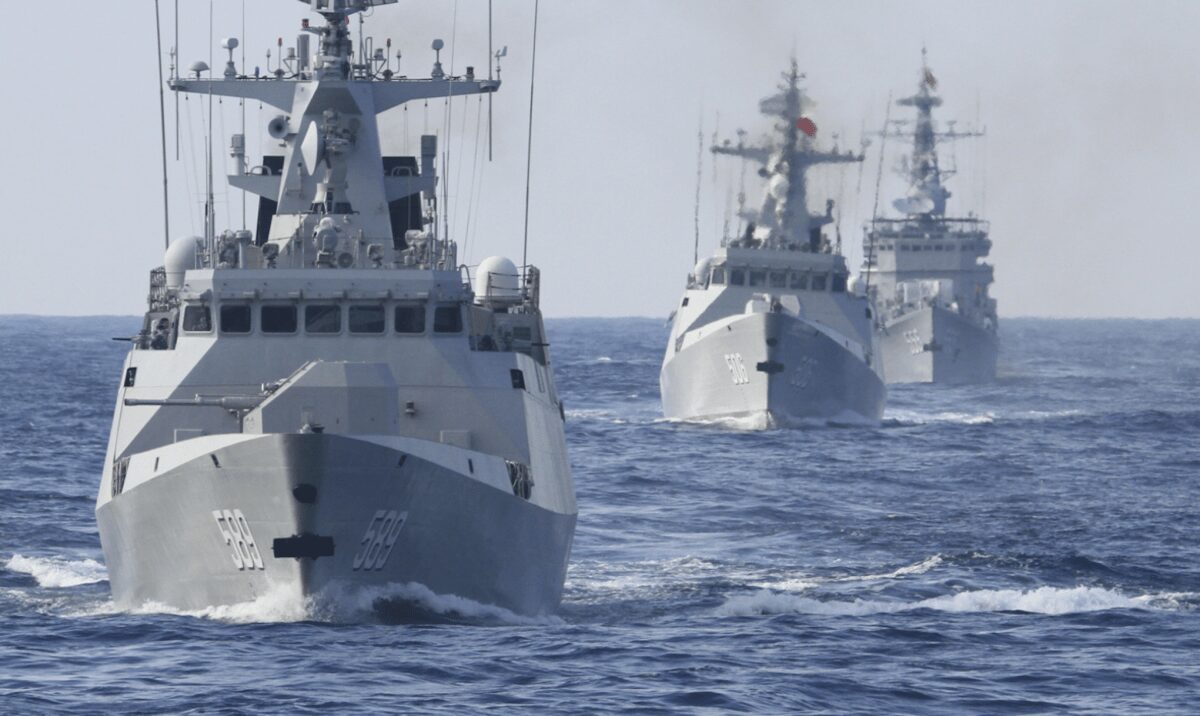Global Courant 2023-05-07 09:34:44
China’s position, policies and practices in the South China Sea have become counterproductive to its efforts to strengthen its soft power and relations with Southeast Asia. Nevertheless, it pursues them and has even doubled down on its historic claim — which was rejected by an international arbitration panel — over much of the sea by enforcing it with its maritime militia, coast guard, and sometimes even its navy.
China’s rival claimants – Indonesia, Malaysia, the Philippines and Vietnam – push back with their own bolstered military presence, upgrades and cooperation with the US and other outside powers. This increasing militarization of the South China Sea disputes forms the basis for the worst-case scenario: frequent and widespread conflict ultimately resulting in a military confrontation between China and the US.
China is trying to build its soft power in the region. It has stepped up its economic and diplomatic efforts through its Belt and Road Initiative to persuade its rival South China Sea claimants to compromise and acknowledge its interests and concerns. It sets a “inclusive” Indo Pacific as an alternative to the free and open Indo-Pacific vision of the United States that excludes China.
The new foreign minister Qin Gang has extended diplomatic efforts Unpleasant broaden and deepen involvement with Southeast Asian countries, including the rival claimants and promised to “keep the South China Sea peaceful and stable.”
Now it has also proposed an umbrella wing Global security initiative (GSI) which includes a pledge “to conduct bilateral and multilateral security operations with all countries and regional organizations.”
To counter what it sees as US-led cliques against it, Beijing could even try to build its own economic and security grouping in the region, starting with China-leaning Laos, Cambodia and Myanmar. It could try to persuade Thailand to join and Vietnam at least to remain neutral.
But if these soft power efforts don’t get its rivals to compromise on their claims, it may decide to do whatever it takes to further its interests in the South China Sea. This would be a realization of the ancient Thucydian proverb that “the strong do what they can and the weak suffer what they must.”
Indeed, it could mean a heavy-handed use of its military “stick” and its economic power to reward and punish “uncooperative” rival claimants.
In this scenario, China would generate widespread incitement and rival plaintiffs would likely move even closer to the US. But China can calculate that it can weather the ensuing political storm.
It knows it has long-term advantages over the US and its rival claimants. It is a permanent fixture in the region – it always will be – and its economic and military power is growing rapidly and inexorably.
In fact, it may be assumed that the rival plaintiffs really can do very little but whine, whine, and beg the US to support them militarily. China can calculate that is unlikely because, despite US rhetoric, there are no core interests in US security are directly threatened and that the American public and Congress will not support another potentially disastrous foreign adventure in defense of nebulous concepts such as the “international order.”
Moreover, if China feels sufficiently threatened, it can counter US efforts to encircle and contain it by enacting America’s worst nightmare: getting closer to Russia. military.
Yes, this is a worst case scenario. But it is a realistic alternative response to the litigation that China may find increasingly attractive as rival plaintiffs’ positions harden and the US becomes more deeply involved. The rival US-China plaintiffs should at least consider the possibility that the “chickens” of their anti-China policies and actions will come home.
Naturally, China’s rival plaintiffs — and the US — want to avoid this worst-case scenario. But to do that, they will have to compromise and address some of China’s concerns and interests. Perhaps the best that can be accomplished is to negotiate a series of “deals.”
For the US, this would include an agreement to refrain from its enhanced diplomatic embrace and military support for Taiwan. For China’s rival claimants in the South China Sea, that means reaching a modus vivendi with China.
Perhaps the best they can hope for is arrangements where China maintains its historical claim to placate its nationalists, but does not enforce it. This could include China’s priority access, led by rival claimants, to some of what they consider to be their fish and petroleum resources.
This could be in exchange for China’s reluctance to intimidate its rivals and provide its cutting-edge technological and capital assistance in harvesting next-generation methane hydrate resources on their continental slopes.
This scenario is not about right and wrong. It’s more about relative power. The reality is that China, its rival claimants and the US must compromise. No compromise means an end to China’s absolute hegemony over the South China Sea or universal catastrophic conflict.
Political and military analysts should be aware of this and advise accordingly. However, if they have realistic alternatives beyond risking war, without the lost hope of China withdrawing its claims, I and the region are all ears.
A edited version of this piece appeared in the South China Morning Post.
Similar:
Loading…








